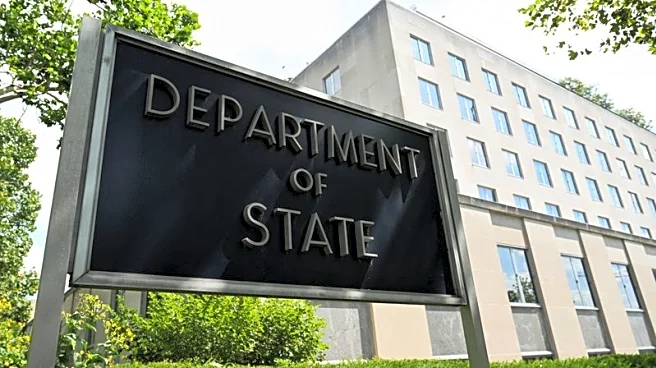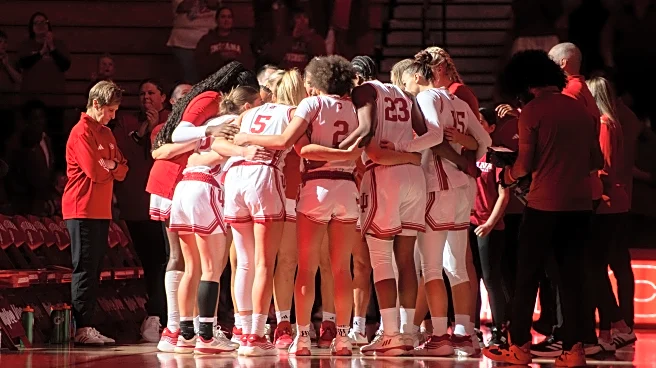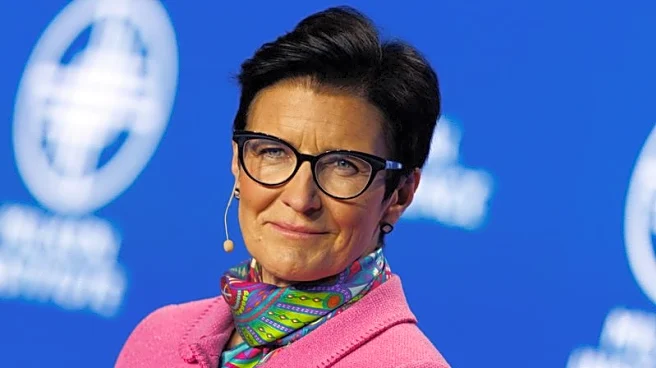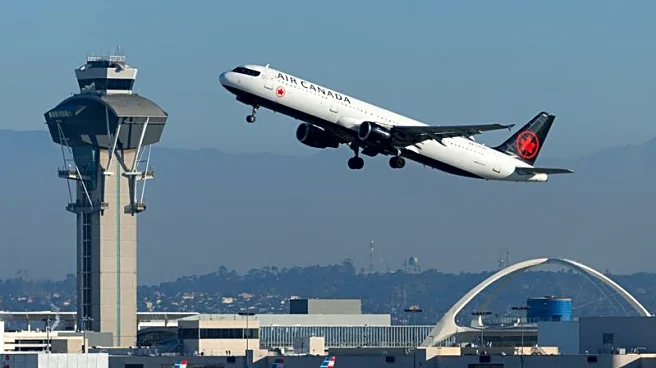What's Happening?
Representatives from European, Latin American, and Caribbean nations convened in Colombia for a two-day summit aimed at strengthening ties amidst concerns over U.S. military operations. The summit, held in Santa Marta, was overshadowed by U.S. strikes
on alleged drug-carrying vessels in the Caribbean Sea and Eastern Pacific, which have resulted in over 60 deaths since September. Colombian President Gustavo Petro, a vocal critic of the strikes, labeled the deaths as 'extrajudicial executions,' highlighting the killing of at least one Colombian citizen. The summit's relevance was questioned due to the absence of key figures like European Commission President Ursula von der Leyen and German Chancellor Friedrich Merz, attributed to scheduling conflicts with the UN climate summit. Despite this, leaders emphasized progress in trade, digital connectivity, and social development.
Why It's Important?
The summit's discussions are crucial as they address the contentious U.S. military actions, which have significant implications for regional stability and international relations. The strikes have been criticized for targeting impoverished Venezuelan fishermen, raising ethical and legal concerns. The event underscores the geopolitical tensions between the U.S. and Latin American countries, particularly Venezuela, and highlights the need for diplomatic dialogue. The summit serves as a platform for regional leaders to express solidarity and seek peaceful resolutions, potentially influencing future U.S. foreign policy and military strategies in the region.
What's Next?
The summit is expected to conclude with a declaration on renewable energy, food security, and technological cooperation, although it remains uncertain if the final statement will address the U.S. strikes. Brazilian President Luiz Inácio Lula da Silva's attendance, despite hosting the COP30 climate conference, signals regional solidarity with Venezuela. Leaders may continue to advocate for peaceful conflict resolution and urge the U.S. to reconsider its military approach. The absence of the U.S. at the summit could facilitate candid discussions on military deployment and regional security.
Beyond the Headlines
The summit highlights the broader implications of U.S. military actions on international diplomacy and regional alliances. The strikes have sparked debates on human rights and the legality of military interventions, potentially influencing global perceptions of U.S. foreign policy. The event also reflects the shifting dynamics in Latin America, where countries are increasingly seeking multilateral solutions and cooperation, challenging traditional power structures.
















